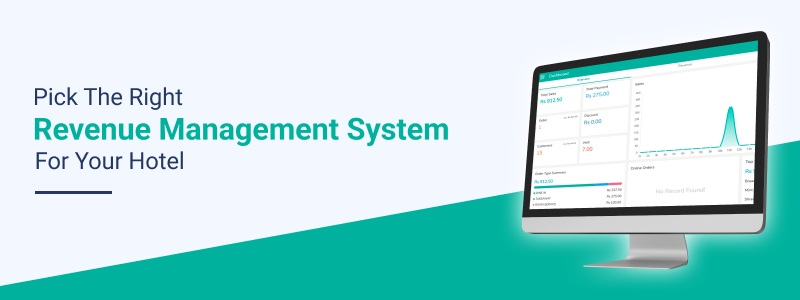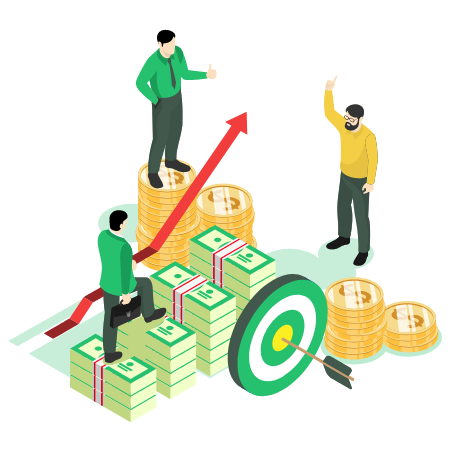Revenue management is the talk of the town in the entire hospitality industry. Accommodation businesses from all around the world are significantly doubling down on it.
Not to mention, even I have been a lot more vocal about this sought-after hospitality phenomenon lately. However, there’s still more to cover.
Today, this blog is going to be all things hotel revenue management systems.
I am not just going to give you an overview, but also help you learn about the features that make it worth it, and how you, a hotelier can pick the right system from the right vendor.
Table of Content
The Current Scenario of Hotel Revenue Management in The Industry
Over the years the hospitality industry has witnessed multiple transformations — the rising need for competitive pricing strategies, penetration of mobile devices, changing traveler preferences, and more.
And all of it directly impacted the revenue management segment in the industry, taking it from nice-to-have to a must-have.
According to various reports, the revenue management market is expected to grow to USD 22.4 billion by 2024.
Furthermore, I have been in this industry for quite some time now and witnessed firsthand how the industry is becoming receptive to revenue management. Be it about outsourcing revenue managers or setting up in-house departments, hotels are putting in a significant amount of effort.

However, if we take a wider look, there are many properties that aren’t sure whether revenue management really makes a difference.
Not just that.
Many don’t even bother to focus on optimizing their revenue; either because they lack expertise and resources, or just find it overwhelming.
Prominent Features of a Hotel Revenue Management System
While the idea of revenue management could be a massive deal for hotels, revenue management software sorts everything out at ease.
It makes revenue management simple and delivers substantial results.
Wondering what exactly a revenue management system is?
A hotel revenue management software or system is a tool that automates the process of using data to determine the right price for hotel rooms and maximize the overall revenue of the hotel business.
Now, there are several hotel revenue management systems available in the market, but not all of them are worth all the tea in china. You as a hotelier must analyze every aspect of the system and then go for one.
To make it a little easier for you, the following are a few hotel revenue management system features that you need to look at while opting for one.
1. Intuitive dashboard
The first and foremost thing to look for is how easy the system is to understand and operate. And that you can determine by looking at that dashboard.
An intuitive dashboard makes it as easy as ABC for the end-users to understand, use the system, and get a quick insight into their data, and drive revenue decisions for the properties.
Simply put, even those who possess minimal technical expertise can make the best out of the system while they are first learning to use the program.
As a cherry on top, also consider whether the dashboard allows various types of views such as list and calendar views. These types of dashboard orientation allow users to spot errors and crucial data points.
2. Multi-dimensional property analysis
The subhead sounds a little too sophisticated? Let me help you understand by breaking it down. (Modafinil Smart Drug)
One of the core aspects of revenue management is analysis — both of your property and competitors.
An ideal hotel revenue management system should be able to analyze your property’s performance on various parameters to help you identify the scope of improvements.
Furthermore, it should also be able to perform in-depth competitor analysis, comparing their rate plans, performance insights, pricing strategies, and more. Additionally, it helps you determine where your competitors are lacking and you’re ahead, and vice versa.
3. Intelligent pricing engine
If I was a revenue manager I would be able to determine what’s happening in the industry at present, how other hotels are pricing their rooms, what travelers are seeking, etc. Because I can see it first hand and make changes accordingly.
But for a machine or a system to do the same, it requires data points and the ability to make sense of that data.
This is where an intelligent pricing engine comes in.
When you’re in your research phase of finding the best revenue management software, make sure the system is able to optimize hotel pricing based on data from market behavior and its consumers.
Dynamic pricing (also known as surge pricing, demand pricing, or time-based pricing) is a great example of price intelligence. It is a strategy that accommodation businesses use to set flexible prices for their rooms based on current market demands.
In the simplest words, intelligent pricing is all about delivering what your guests expect whilst being profitable for you.
4. Super detailed reporting
This is another vital feature you need to look out for while choosing the right revenue management system for your property.
When you invest in a system to gain meaningful revenue, you have to have a detailed view of what’s happening and reports are your friend here.
Be it about your property’s analysis, pickup report, ADR report, revenue forecast, or competitor analysis, the reports should deliver even the tiniest of the details.
If the system doesn’t offer that, then you might want to continue.
The Best Revenue Management System Out There
Which is the best hotel revenue management software for hotels?
This is exactly what you’re thinking. Aren’t you?
Well, there are various revenue management systems available for hotels in the market and each of them is great in its own way.
However, being in the hospitality industry for so long, my money is on eZee Mint.
eZee Mint is one of the smartest revenue management systems in the hotel industry at present that helps in optimizing revenue through dynamic pricing.
The system is designed and developed by considering the vastness of revenue management. It works upon a series of criteria including weekly occupancy, seasonality, lead time, demands, and last-minute booking to calculate competitive rates for the available inventory.
Simply put, it not only offers pricing strategies but also helps you analyze your hotel’s entire revenue infrastructure and boosts the bottom line significantly.
Conclusion
Revenue management is crucial for hotels. But what’s more crucial is the ability to use it the right way. Also, if you have been wondering about what features a hotel revenue management system should have, then I am sure this blog is definitely going to help you.
I talk to a lot of hospitality professionals and they always tell me that even though revenue management is important and hotels are using it, the awareness still needs to be pushed a bit more.
Many hoteliers, especially the new and budding ones, must learn about this amazing aspect of hospitality.
Lately, through my blogs, I have been trying a lot to spread the word about hotel revenue management. Do let me know if I am doing it right or should I try something else.



